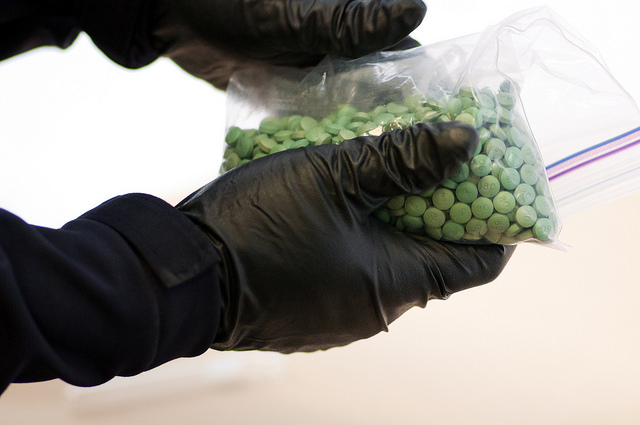
Darknet marketplaces are typically set up to engage in the trading of illicit products and services, and are considered criminal in most jurisdictions. Image: Dennis Yip (Flickr).
Many people are probably aware of something called “the darknet” (also sometimes called the “dark web”) or might have a vague notion of what it might be. However, many probably don’t know much about the global flows of drugs, weapons, and other illicit items traded on darknet marketplaces like AlphaBay and Hansa, the two large marketplaces that were recently shut down by the FBI, DEA and Dutch National Police. We caught up with Martin Dittus, a data scientist working with Mark Graham and Joss Wright on the OII’s darknet mapping project, to find out some basics about darknet markets, and why they’re interesting to study. Firstly: what actually is the darknet? Martin: The darknet is simply a part of the Internet you access using anonymising technology, so you can visit websites without being easily observed. This allows you to provide (or access) services online that can’t be tracked easily by your ISP or law enforcement. There are actually many ways in which you can visit the darknet, and it’s not technically hard. The most popular anonymising technology is probably Tor. The Tor browser functions just like Chrome, Internet Explorer or Firefox: it’s a piece of software you install on your machine to then open websites. It might be a bit of a challenge to know which websites you can then visit (you won’t find them on Google), but there are darknet search engines, and community platforms that talk about it. The term ‘darknet’ is perhaps a little bit misleading, in that a lot of these activities are not as hidden as you might think: it’s inconvenient to access, and it’s anonymising, but it’s not completely hidden from the public eye. Once you’re using Tor, you can see any information displayed on darknet websites, just like you would on the regular internet. It is also important to state that this anonymisation technology is entirely legal. I would personally even argue that such…
